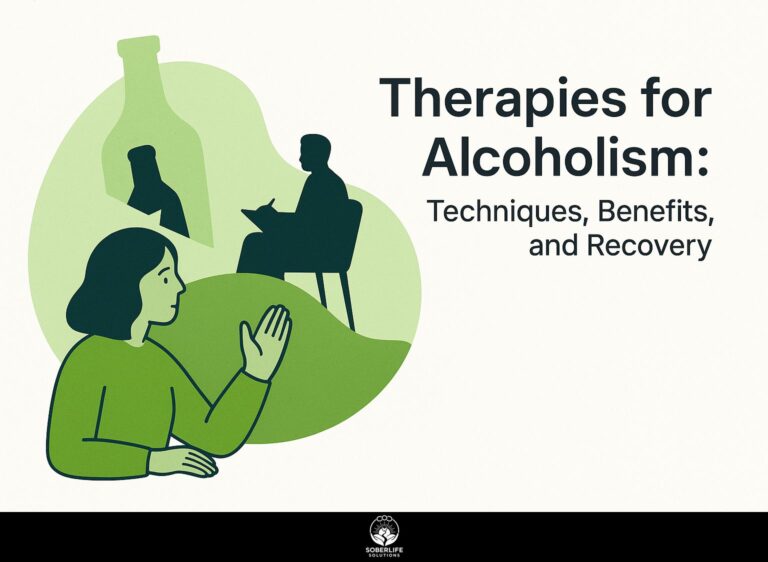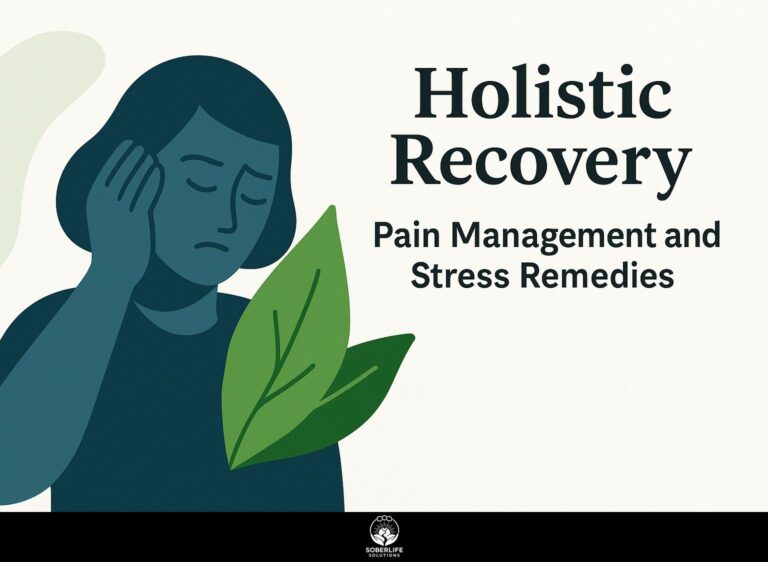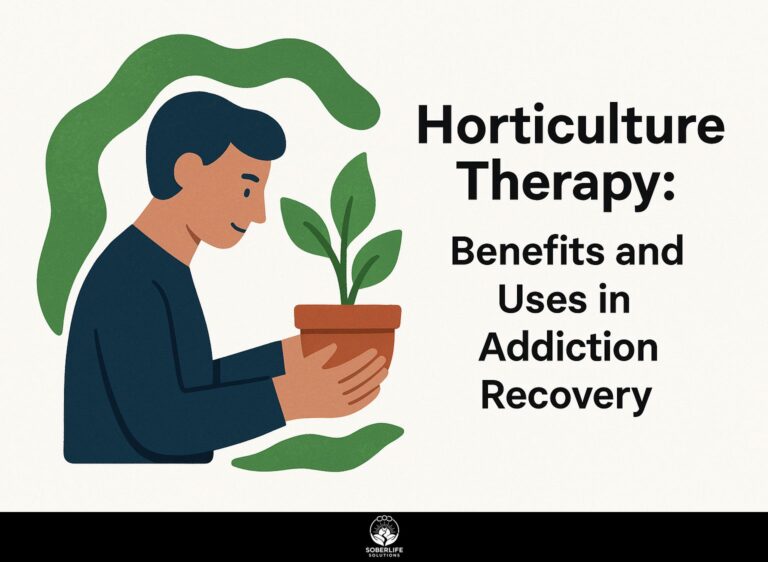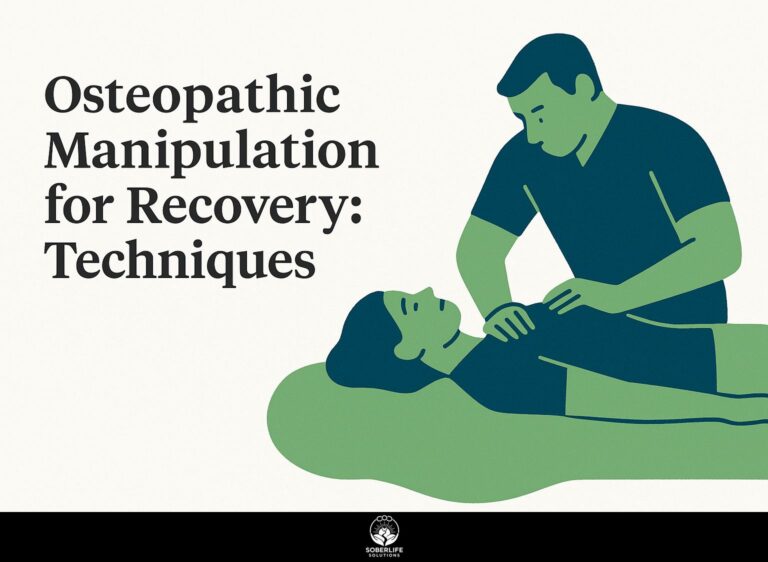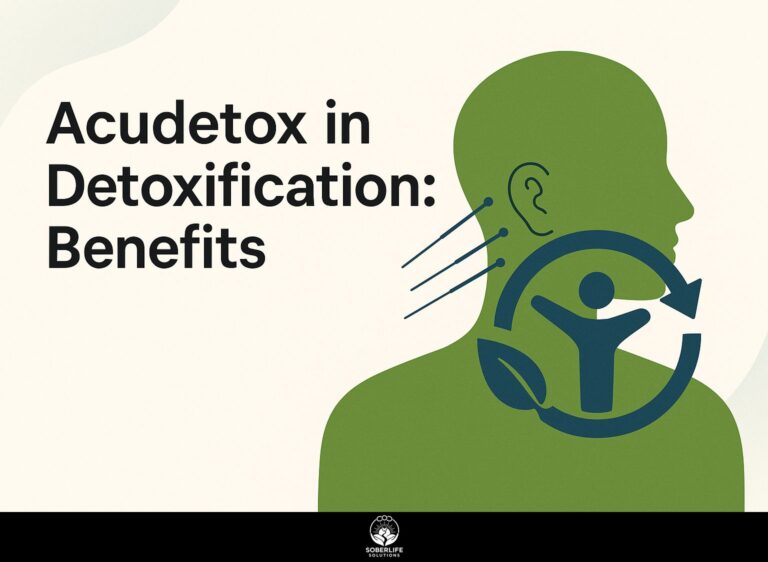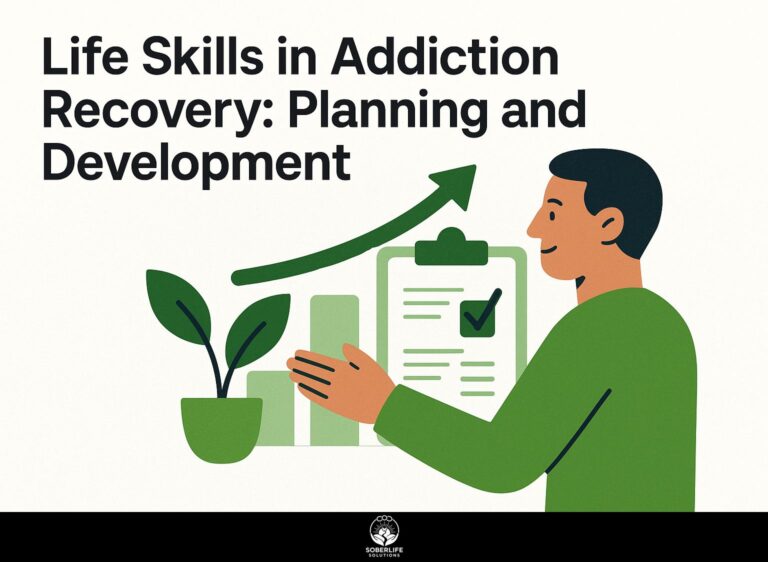Reducing Stress and Anxiety in Alcoholism Treatment
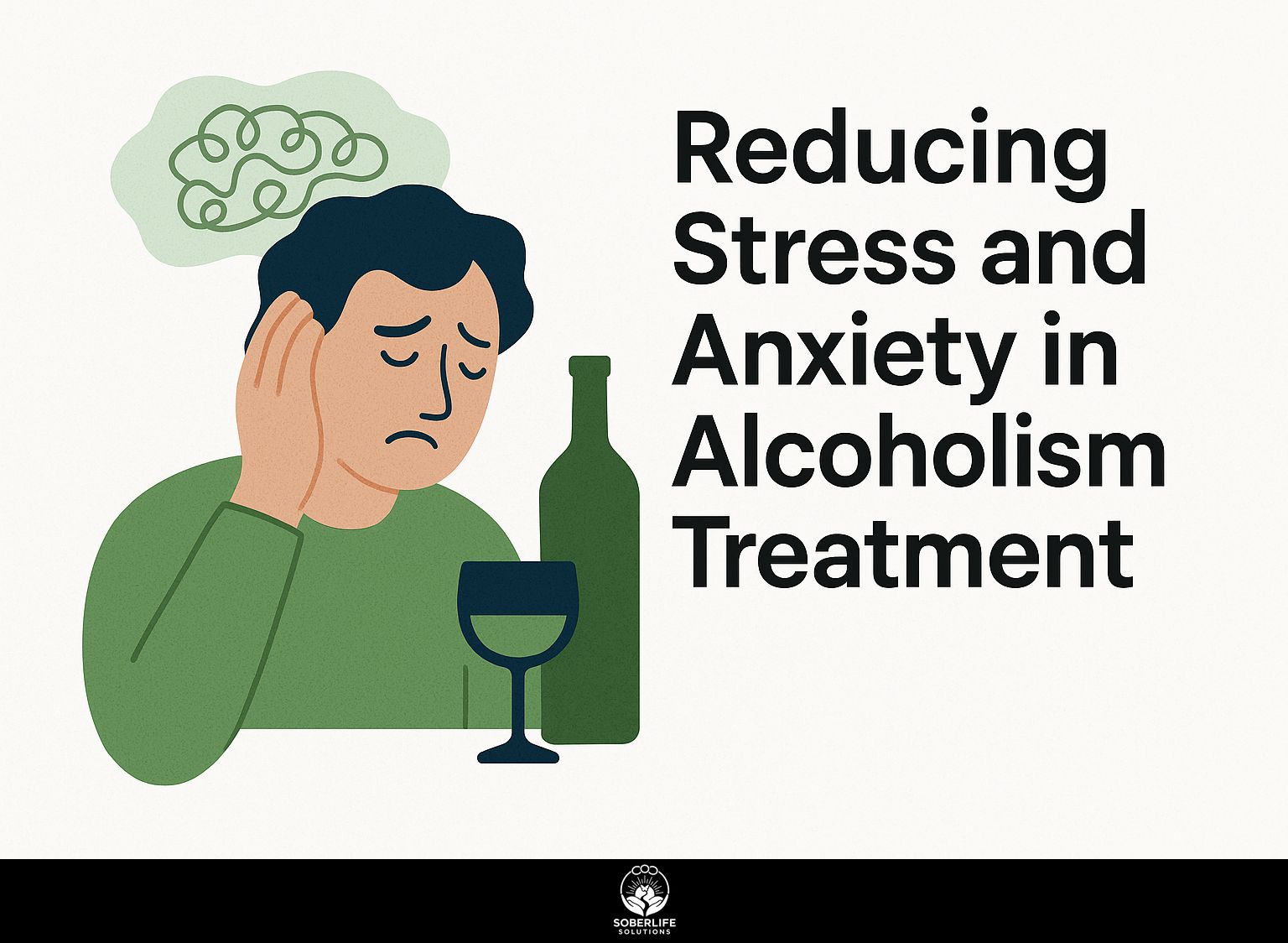
Struggling with alcohol use disorder often intensifies psychological stress and anxiety disorders, creating a vicious cycle that complicates recovery. It’s important to know how people with alcohol addiction react to stress for their treatment to work well. This article will discuss the importance of reducing stress and anxiety in alcoholism treatment, focusing on therapy methods and self-care techniques that can improve recovery results. Learn how dealing with these emotional issues can lead to a healthier life without alcohol.
Key Takeaways:
Understanding Alcoholism and Its Impact
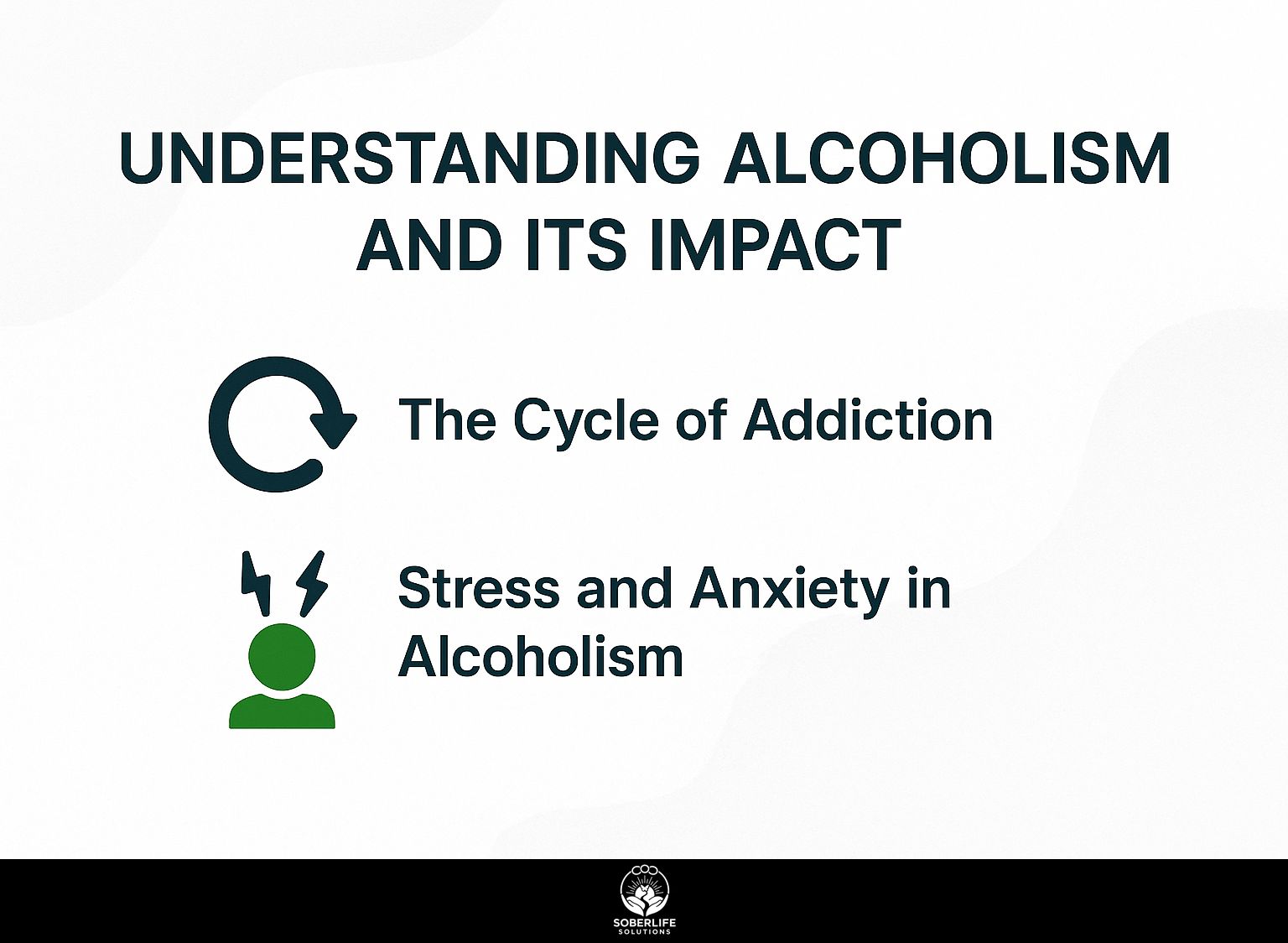
Alcoholism is a serious condition that changes the way a person thinks and acts, significantly impacting how they interact with alcohol and leading to mental stress and anxiety problems. For context, an article by Healthline dives deeper into how alcohol-related neurologic disease can manifest as a result of excessive alcohol consumption, further highlighting the serious neurological implications. During recovery, many have found that [improving quality of life](https://soberlifesolutions.com/alcoholism-recovery-quality-life/) can significantly aid in managing the mental stress and anxiety problems associated with alcoholism.
The Cycle of Addiction
The cycle of addiction features a predictable sequence of behaviors: initial use, escalation, dependence, and relapse, often driven by self-administration and psychological factors.
During initiation, first use is frequently linked to social environments, such as parties or gatherings.
In the escalation phase, individuals often increase tolerance and frequency of use within a few months, leading to deeper dependence-both physically and psychologically.
Treatment options, like cognitive behavioral therapy (CBT) and support groups, can help break this cycle. The relapse rate is notable, with up to 60% experiencing a return to substance use within the first year after treatment, highlighting the need for ongoing support and strategies to maintain sobriety.
Stress and Anxiety in Alcoholism
High levels of psychological stress and anxiety can exacerbate alcohol dependence, creating a detrimental feedback loop that perpetuates the use of alcohol as a coping mechanism.
The neurobiological impact of stress involves the activation of the hypothalamic-pituitary-adrenal (HPA) axis, leading to increased cortisol levels, which can influence alcohol cravings. This process is detailed in a comprehensive article by ScienceDirect on the HPA axis and its role in stress.
Stress also alters serotonin pathways, affecting mood regulation and potentially encouraging the use of alcohol to self-medicate. Studies have shown that incorporating stress management techniques, such as mindfulness and cognitive-behavioral therapy (CBT), significantly reduces alcohol use disorder (AUD) symptoms.
For example, participants in a mindfulness-based program experienced a 30% reduction in alcohol consumption, illustrating the effectiveness of addressing stress for improved treatment outcomes.
Importance of Stress Reduction in Treatment
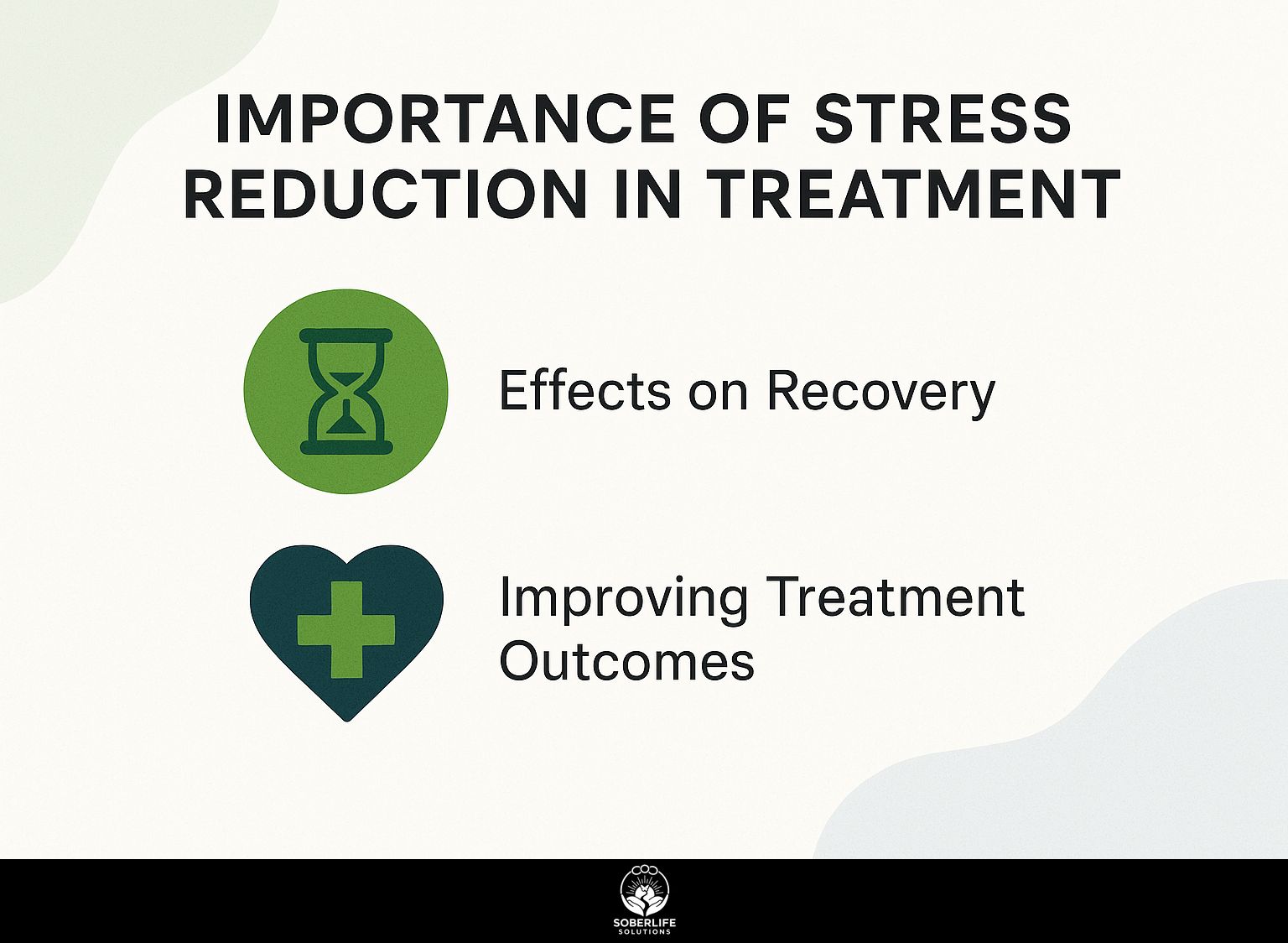
Lowering stress is important for treating alcohol use disorder because it affects recovery rates and mental health. Additionally, learning how to build coping skills effectively can significantly enhance one’s ability to manage stress and improve overall recovery outcomes.
Effects on Recovery
Managing stress well can improve recovery, and research indicates a 40% drop in relapse rates for patients who use stress reduction methods.
Cognitive Behavioral Therapy (CBT) is one such evidence-based intervention, helping individuals identify negative thought patterns and replace them with healthier ones.
Studies indicate that patients utilizing CBT experience notable improvements in anxiety management, contributing to overall treatment success. Structured mindfulness practices, like meditation or deep-breathing exercises, can greatly reduce stress levels.
Research from Alcohol Research & Health highlights that controlling emotions is very important in recovery; people who handle their emotions well have a 30% higher chance of staying sober for a long time.
Improving Treatment Outcomes
Integrating stress management into treatment plans significantly improves outcomes, with one study noting a 50% increase in treatment retention when combined with support groups.
Cognitive Behavioral Therapy (CBT) is a key strategy in this integration, helping patients identify and reshape negative thought patterns.
For instance, a clinical trial demonstrated that patients utilizing CBT alongside stress management techniques reported greater emotional resilience and reduced anxiety levels.
Building community support can improve commitment; forming peer-led support groups or online forums promotes sharing experiences and coping methods.
Tools like mood tracking apps can also complement these efforts, enabling patients to monitor their emotions and respond proactively, furthering treatment success.
Therapeutic Approaches
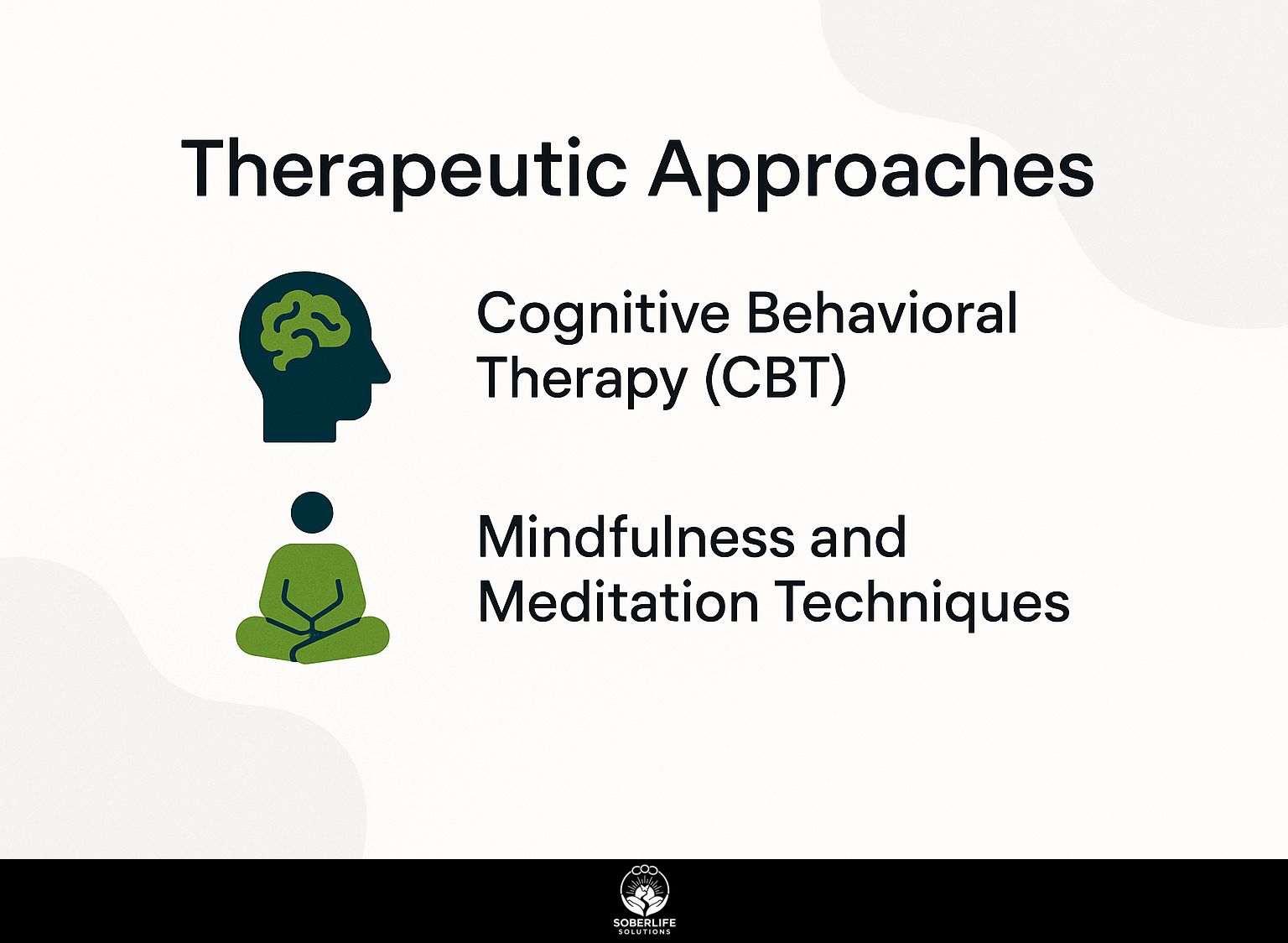
Therapies like Cognitive Behavioral Therapy (CBT) and mindfulness practices are effective at treating alcohol use disorder and related stress. Related insight: Holistic therapies in alcoholism recovery offer complementary techniques and benefits that can further enhance recovery efforts.
Cognitive Behavioral Therapy (CBT)
CBT is known for its organized method. It helps patients recognize and change unhelpful thoughts and actions related to alcohol use, resulting in better coping abilities.
In a typical CBT session, therapists employ techniques like cognitive restructuring to challenge distorted beliefs and role-playing to practice new coping strategies. The structure generally includes goal setting, discussion of current challenges, and skill practice.
To help prevent relapse, patients create a custom plan that lists their triggers and ways to handle them. Research indicates that CBT can achieve a significant impact, with studies showing up to a 60% reduction in relapse rates among participants, highlighting its effectiveness in long-term recovery strategies.
Mindfulness and Meditation Techniques
Mindfulness and meditation techniques, such as the 8-week Mindfulness-Based Relapse Prevention (MBRP), can decrease emotional reactivity and support long-term recovery. Research published in JAMA Psychiatry indicates that these methods are particularly effective in sustaining recovery efforts.
Engaging with apps like Headspace and Calm can strengthen these practices. Headspace provides guided meditations that help with cravings and anxiety, which is helpful during recovery.
Calm provides bedtime stories and breathing exercises that can help you relax and manage your emotions better. Using these tools regularly helps people become more self-aware and provides them with ways to manage triggers, supporting staying sober and enhancing general well-being.
Support Systems
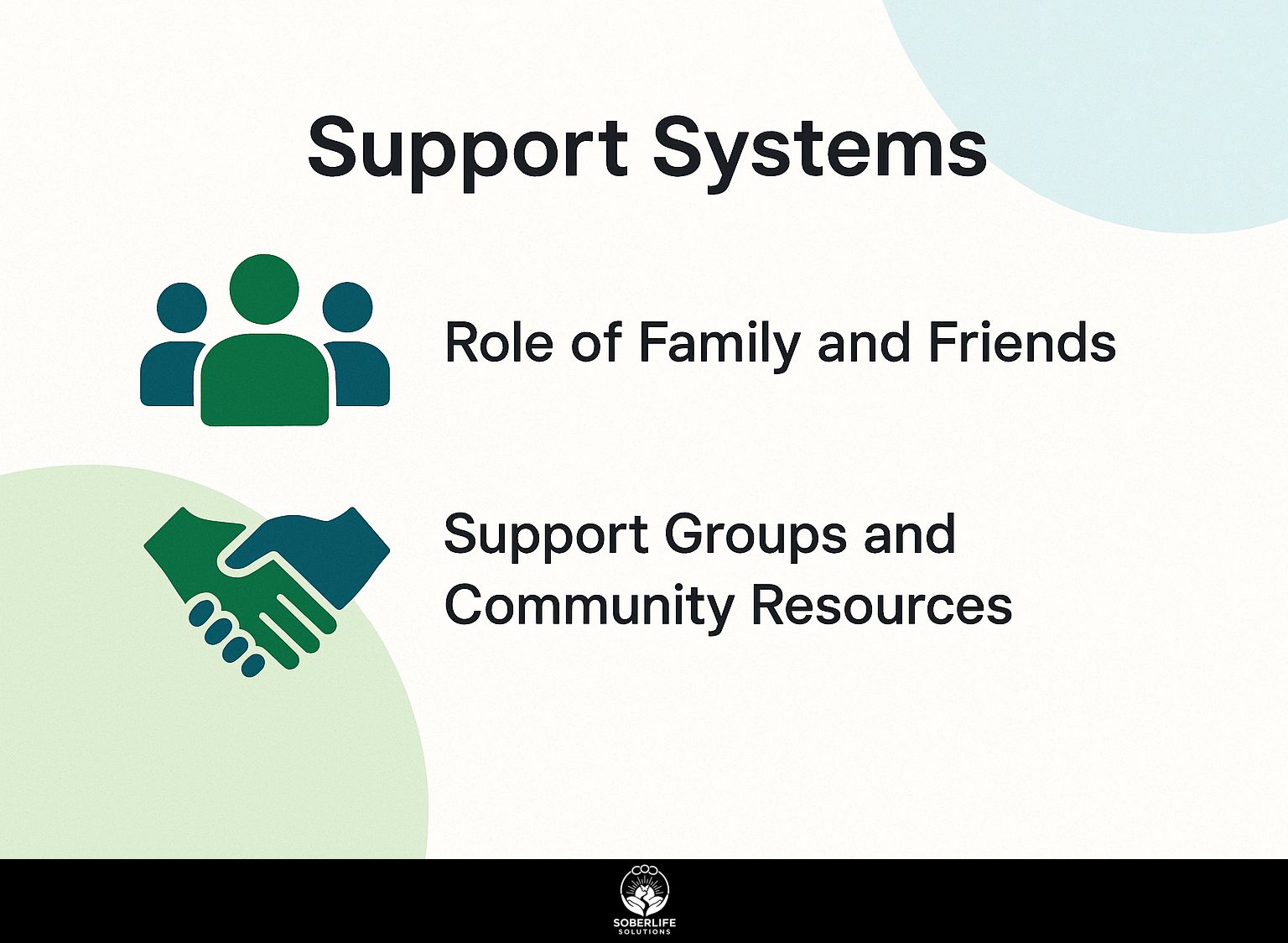
Support systems are important in the recovery process, providing emotional strength and practical help to people dealing with alcohol use disorder. If you’re interested in enhancing your understanding of how to effectively build these support networks, you might find our guide on key strategies for building a support network invaluable.
Role of Family and Friends
Family and friends play an integral role in recovery, providing emotional support that can lead to a 30% increase in recovery success rates.
Including family and friends in the recovery process can be achieved using different approaches. Families can join therapy sessions, helping them learn and actively support the healing process.
Regular meetings where family members offer support or talk about their own experiences can increase motivation. Organizing family-focused recovery activities-such as exercise or support group meetings-helps strengthen family connections and creates a helpful setting.
Discussing setbacks honestly can help us manage our feelings better, turning tough times into a shared lesson instead of feeling isolated.
Support Groups and Community Resources
Support groups like Alcoholics Anonymous (AA) provide organized settings for people to share their experiences, promoting community and lowering relapse rates by up to 50%.
SMART Recovery is a helpful choice that focuses on self-control and offers methods for dealing with cravings related to addiction. Research indicates that people in these programs experience major progress in their recovery.
For instance, groups like Women for Sobriety target specific demographics and address unique challenges, enhancing group cohesion and support. Utilizing online resources, such as forums and virtual meetings, can also provide ongoing connection and encouragement.
Being part of these communities helps with emotional health and can significantly improve the chances of staying sober over time.
Self-Care Strategies
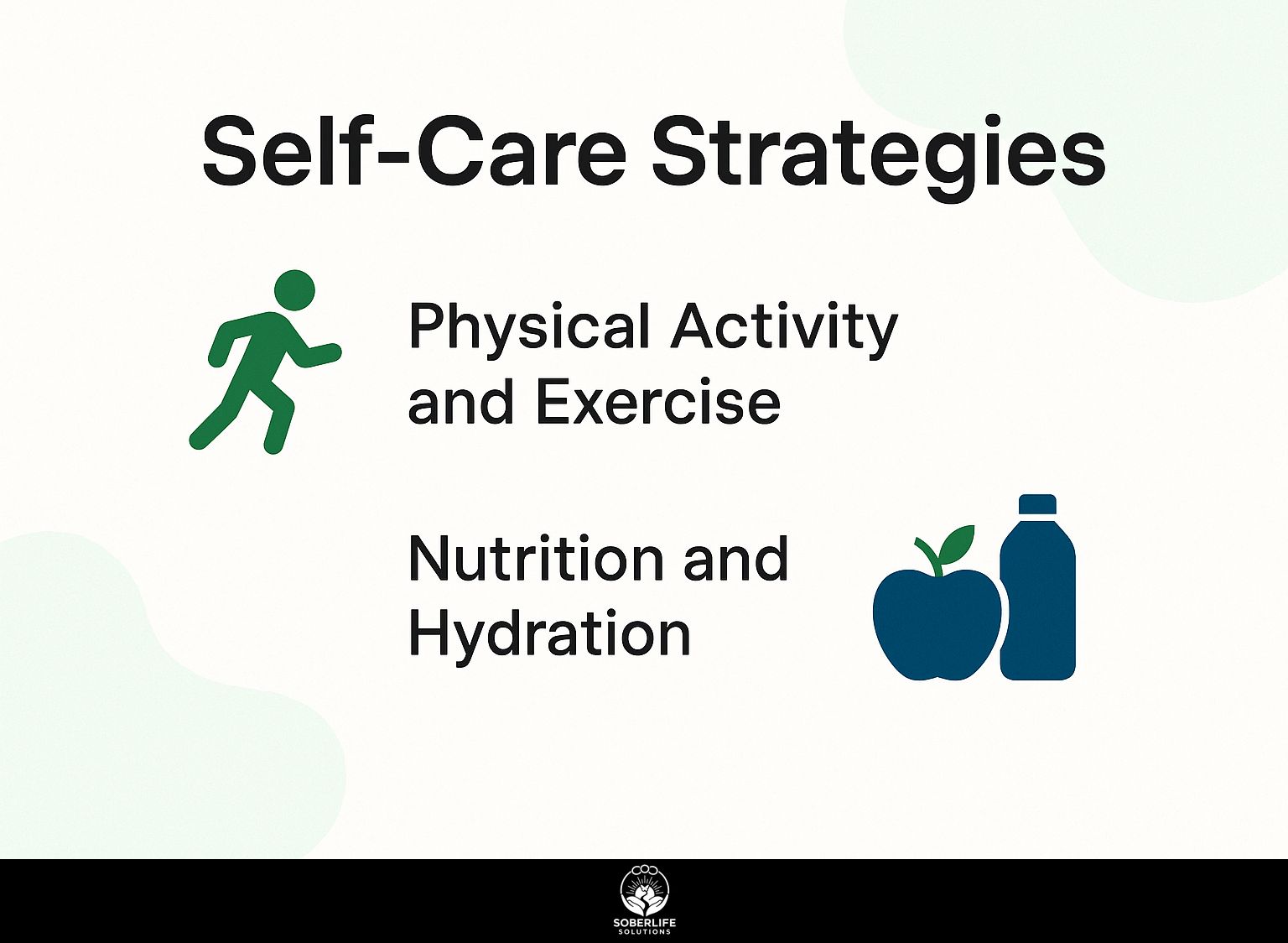
Looking after your health is very important for people recovering from alcohol addiction because it greatly affects mental health and stress management. For a comprehensive approach, integrating aspects like fitness, nutrition, and sleep can play a crucial role in recovery-our guide on fitness, nutrition, and sleep in addiction recovery elaborates on these essential components.
Physical Activity and Exercise
Regular physical activity can reduce symptoms of anxiety and depression, with studies indicating a 40% decrease in cravings among those who exercise regularly.
To gain the most from your recovery, include particular exercises like brisk walking or cycling for at least 150 minutes each week.
Doing yoga and stretching exercises three to four times a week can help improve flexibility and mindfulness.
Joining local community groups, such as fitness classes or walking clubs, can provide social support and motivation.
Tools like fitness apps (e.g., MyFitnessPal, Calm) or online platforms (like YouTube for guided yoga) can also help maintain a consistent routine conducive to both physical and mental well-being.
Nutrition and Hydration
Eating and drinking right are important for recovery, brain function, and reducing cravings for junk food. A balanced diet can improve mood stability by 25%.
- To improve recovery, eat foods high in omega-3 fatty acids, like salmon and walnuts, which are good for brain health.
- Add whole grains such as quinoa and brown rice for long-lasting energy, and include antioxidants from berries and leafy greens to fight inflammation.
- Meal planning can be simplified by prepping healthy snacks, such as yogurt with fruit or mixed nuts, ensuring you have nutritious options readily available.
- Alongside your meals, aim for 8-10 glasses of water daily to promote optimal hydration, further aiding recovery.
Long-Term Management of Stress and Anxiety
Managing stress and anxiety well over the long run is important for ongoing recovery from alcohol use disorder and avoiding relapse.
Frequently Asked Questions
1. How can reducing stress and anxiety improve alcoholism treatment?
Lowering stress and anxiety can help with alcoholism treatment by creating a calmer and more positive outlook. This makes it easier to participate in therapy and make beneficial changes. It can also help manage triggers and cravings associated with alcohol use.
2. What are some effective strategies for reducing stress and anxiety in alcoholism treatment?
Some useful strategies include practicing mindfulness and relaxation methods, exercising often, getting help from family or friends, or joining a support group, and dealing with any mental health problems.
3. Can medication be helpful in reducing stress and anxiety during alcoholism treatment?
In some cases, medication may be prescribed to help manage anxiety and reduce stress during alcoholism treatment. It’s best to use it together with therapy and other coping methods to get the most benefit.
4. How does stress and anxiety contribute to alcoholism?
Chronic stress and anxiety can increase the risk of turning to alcohol as a coping mechanism. Alcohol might seem to help with symptoms for a while, but it can cause addiction and make mental health problems worse.
5. Can managing stress and anxiety after alcoholism treatment help prevent relapse?
Managing stress and anxiety after treatment is important to avoid relapse. By developing healthy coping mechanisms and addressing underlying issues, individuals are less likely to turn to alcohol to manage their emotions and triggers.
6. Are there any specific therapies that focus on reducing stress and anxiety in alcoholism treatment?
Cognitive Behavioral Therapy (CBT) and Dialectical Behavioral Therapy (DBT) are commonly used in alcoholism treatment and focus on managing stress and anxiety. These therapies help individuals identify and change negative thought patterns and develop skills to cope with difficult emotions.

